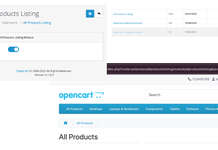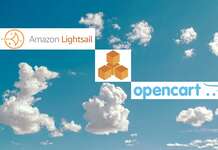Introduction:
Embracing transformational technologies that will reinvent delivery route optimization is essential to imagining the future of logistics and supply chain management. A paradigm change in optimization processes is anticipated with the introduction of future solutions, which are powered by cutting-edge technologies like blockchain, artificial intelligence (AI), machine learning (ML), and the Internet of things (IoT). The future of delivery route optimization software is examined in this essay, which offers a detailed picture of a logistics environment that is not only extremely effective but also sustainable and adaptable to the changing needs of the modern world.
1. The Role of Machine Learning (ML) and Artificial Intelligence (AI):
Adaptive Route Optimization in Real-Time: Artificial intelligence (AI) and machine learning (ML) algorithms that continually evaluate enormous amounts of real-time data will play a major role in futuristic delivery route improvement. These technologies will dynamically adjust to unanticipated disturbances in addition to optimizing routes depending on traffic, weather, and delivery priorities. The algorithms will develop and become more accurate over time as a result of machine learning models’ constant improvement of their predictions.
Predictive Analytics for Enhanced Planning: Delivery route planning will be able to use predictive analytics thanks to AI and ML. These technologies will be able to predict demand patterns by evaluating past data, giving firms the ability to design optimal routes in advance. The scope of predictive analytics will go beyond traffic conditions to encompass variables like consumer preferences, seasonal fluctuations, and even outside events that might affect delivery timetables.
2. Integration of Internet of Things (IoT):
Infrastructure and Smart Vehicles: An important factor in upcoming route optimization will be the incorporation of IoT devices into infrastructure and delivery trucks. Real-time information about a vehicle’s state, fuel level, and external conditions may be obtained via sensor-equipped vehicles. In order to provide dynamic modifications to traffic flows and real-time route optimization, smart traffic signals and road infrastructure will interact with delivery trucks.
Data-Driven Decision-Making: AI and ML algorithms will be able to process data created by the Internet of Things, allowing for data-driven decision-making. When devices are connected to one another, a vast network is formed that takes into account a variety of factors in real time, improving the accuracy of route optimization. An automated and efficient level of delivery logistics will be made possible by this networked environment.
3. Blockchain for Enhanced Transparency and Security:
Immutable Records and Transparency: The delivery route optimization process will experience previously unheard-of transparency with the use of blockchain technology. Every transaction and choice taken throughout the route planning process will be transparently and impenetrably recorded thanks to the immutable ledger of blockchain technology. Accountability along the whole supply chain will be ensured by this transparency, which will foster confidence among stakeholders.
Enhanced Security and Fraud Prevention: Delivery routes will be more secure thanks to blockchain’s secure and decentralized structure. Delivery processes are made both safe and efficient thanks to the technology’s capacity to establish a chain of custody for every delivery. Furthermore, because blockchain cannot be altered, fraudulent actions will not occur, adding a strong layer of security to the entire logistical process.
4. Autonomous Vehicles and Drone Integration:
Autonomous Vehicles and Advanced Fleet Management: Autonomous vehicle integration is intimately related to the future of delivery route optimization. Autonomous fleets propelled by artificial intelligence (AI) will traverse paths with unparalleled proficiency, adjusting to current circumstances and vehicular trends. By communicating with one another, these cars will be able to coordinate their moves to maximize fleet efficiency.
Networks of Drone Delivery: With their quick and efficient delivery capabilities, drones will be a familiar sight in logistics in the future. Drone motions will be synchronized by AI algorithms to guarantee a smooth integration with the current delivery routes. In order to reach locations that are difficult for conventional cars to reach, drones will be essential for last-mile deliveries, which will increase the effectiveness of the delivery network as a whole.
5. Augmented Reality (AR) for Route Visualization:
Augmented Reality for Better Navigation: In the future, delivery route optimization will make use of augmented reality to provide better navigation. Delivery staff will be able to see optimum routes superimposed on the actual world using AR devices. This not only makes navigating easier, but it also lowers mistakes and boosts delivery staff productivity.
Real-Time Data Visualization: AR interfaces will provide real-time data visualization, revealing information about possible impediments, traffic patterns, and delivery routes. Delivery staff will be able to make well-informed judgments while on the road thanks to this visual augmentation, which will enable them to adjust to changing conditions and optimize their routes instantly.
6. Environmental Sustainability in Route Optimization:
Green route optimization: Algorithms for route optimization that reduce carbon footprints will target environmental sustainability in the logistics industry going forward. Renewable energy sources for vehicle charging will be taken into account by AI and ML, along with environmentally friendly solutions like hybrid or electric cars. Optimizing green routes will be in line with the increased emphasis on corporate social responsibility while also lessening the impact on the environment.
Reducing Emissions via Optimization: It will become commonplace to include emission data in route optimization algorithms. By prioritizing routes with lower emissions and analyzing their environmental effect, AI will support international efforts to create a more sustainable and greener future.
7. Customer-Centric Personalization:
Customized Delivery Preferences: In addition to taking into account the quickest and most cost-effective routes, future route optimization will also take into account the unique preferences of each client. In order to customize delivery schedules based on desired time windows, delivery locations, and packaging selections, AI algorithms will evaluate client data. Stronger customer loyalty will result from this customer-centric strategy, which will improve the delivery experience overall.
Individualized Communication: Throughout the delivery process, individualized communication will be made possible by AI-driven technologies. Clients will have a transparent and customized delivery experience as they will receive real-time updates and alerts based on their choices. In the logistics sector, this degree of customization will usher in a new era of client happiness.
Conclusion:
Sustainability, cutting-edge technology, and a customer-focused mindset come together to form the future of delivery route optimization. Imagining this scene displays a complex logistics ecosystem that seamlessly combines blockchain technology, augmented reality, autonomous cars, drones, machine learning, artificial intelligence, the Internet of Things (IoT), and sustainability of the environment. The integration of blockchain guarantees transparency and trust, while AI and ML redefine efficiency through dynamic route optimization. Delivery staff can make better decisions thanks to augmented reality, and autonomous cars and drones usher in a new era of last-mile delivery. In order to establish a delivery ecosystem that is transparent, customer-focused, and sustainable, TransGenie Delivery Route Optimization Software takes the lead in integrating these technologies. Enterprises adopting
With its cutting-edge solutions, TransGenie is leading the way into this revolutionary future, where creating unique, environmentally responsible experiences for every consumer is just as important as route optimization.






